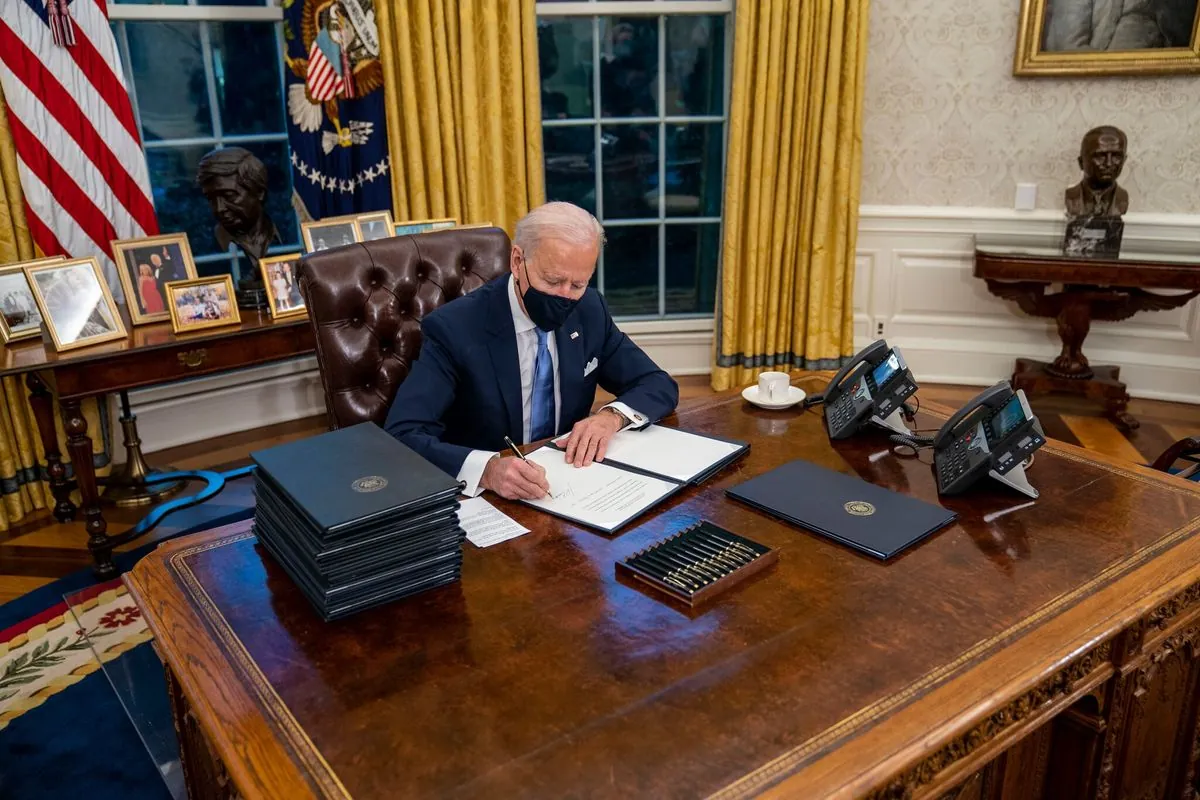Biden's Economic Legacy: A Complex Tapestry of Policy and Outcomes
As Biden's presidency nears its end, his economic policies face scrutiny. With a focus on industrial strategy and rivalry with China, the long-term impact remains uncertain in a rapidly evolving global landscape.

Joe Biden's decision not to pursue re-election has ignited a debate about his presidential legacy, particularly in the economic sphere. While partisan rhetoric tends to dominate such discussions, a more nuanced examination reveals a complex picture of Biden's economic approach and its potential long-term effects.
At the core of Biden's economic strategy lies a significant departure from his predecessors' policies. His administration has embraced industrial policy, a concept involving government intervention to promote specific sectors. This shift represents a notable change from the free-market approach that has dominated US economic thinking for decades.
One of the most prominent aspects of Biden's economic agenda has been its focus on revitalizing American manufacturing. However, the results of this effort remain ambiguous. While there has been substantial investment in new factories, particularly in the electric vehicle and battery sectors, the overall impact on manufacturing employment is less clear-cut. As of June 2024, the number of manufacturing jobs in the US stood at 12.95 million, only marginally higher than in January 2023 and significantly lower than the 17.25 million recorded in January 2000.

The administration's approach to international trade, especially concerning China, has been notably assertive. Biden has continued and expanded the use of tariffs and export controls, particularly in high-tech industries like semiconductors. The CHIPS and Science Act, signed into law in 2022, exemplifies this strategy by aiming to boost domestic semiconductor production.
"The President's economic policies are designed to strengthen America's position in critical industries and create good-paying jobs for American workers."
Another key element of Biden's economic policy has been the concept of "place-based" economics, which aims to stimulate growth in economically disadvantaged areas. This approach is partly a response to the political upheavals of 2016, which highlighted the consequences of regional economic disparities. However, recent studies, such as one conducted by the Economic Innovation Group, suggest that while these "left-behind" counties have fared better under Biden than under his predecessor, they still lag behind the national average in job creation.
The transition to green energy, a cornerstone of Biden's environmental and economic policies, adds another layer of complexity to his legacy. The Inflation Reduction Act of 2022 allocated significant resources to clean energy initiatives, but the full economic impact of this transition remains to be seen.
As the November 5, 2024, election approaches, the debate over Biden's economic legacy will likely intensify. However, the true impact of his policies on America's economic landscape and global competitiveness may not be fully apparent for years to come. What is clear is that Biden's presidency has marked a significant shift in US economic policy, the consequences of which will continue to unfold long after he leaves office.


































